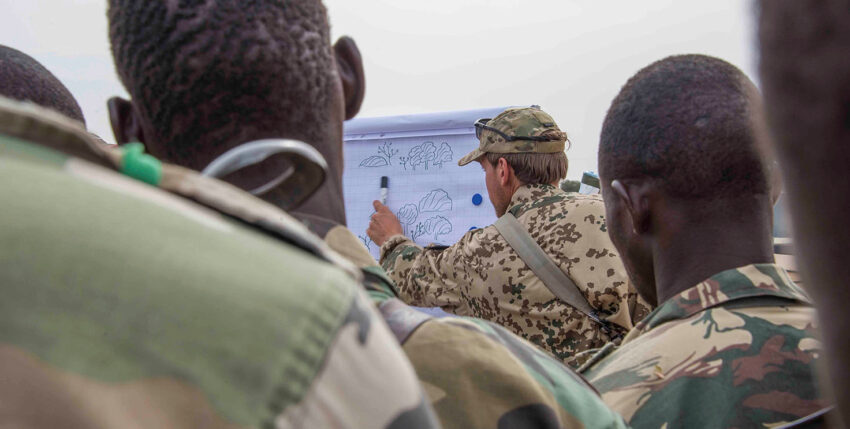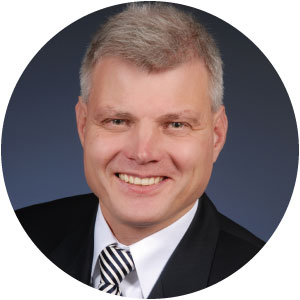UPDATE
There is an interesting documentary on the subject in the ARD media centre: Deployment in the death zone.
German combat swimmers can not only operate in a maritime environment. When training Nigerian special forces, they achieve remarkable things under adverse conditions.
The sun has just come out over the dusty hill. The thermometer shows 25° C in the shade. This is the coolest moment of the day. From now on, the temperature rises steadily up to 46°C. A team of combat swimmers has already been busy with early morning exercise for almost an hour. Morning routine at Camp Desert Flower, as the small base in the middle of the Sahelian country of Niger has been affectionately christened. Another strenuous day of training awaits, which will once again take its toll in the form of a lot of sweat.
At the end of 2017, the German government decided to support various African states in improving the security situation on the ground as part of an upgrading initiative. As an anchor of stability in the Sahel region, the focus is on Niger. Numerous projects such as the provision of off-road lorries or financial support for the construction of the Nigerien NCO school in Agadez were initiated jointly with the Federal Foreign Office in close cooperation with the Nigerien military. One of these upgrading projects aims to support the development of special forces.
The starting point and initiative for this project came from the country itself. In 2016, the President of Niger issued a decree to establish special forces battalions (bataillon spécial d'intervention) and to create a special forces training facility that will sustainably improve the country's security architecture. These battalions are to be set up and equipped successively over the next few years. The aim of these measures is to effectively combat the terrorist threats on Niger's borders, including Boko Haram in Nigeria and the offshoots of the Islamic State in Mali, and to bring organised crime, particularly the smuggling of people, weapons and drugs through Niger, under control.
Alongside other Western partners, Germany has been supporting this engagement since June 2018 with the Gazelle mission, which was created as a special forces mission below the threshold of a mandated deployment. The task of this mission is to train and equip a Battalion Spécial d'Intervention (BSI) and to finance the infrastructure of the special forces training facility. The Special Forces Command of the Navy (KSM) was designated as the lead organisation, which meant that the combat swimmers stationed in the Baltic Sea found themselves in the Niger desert at the end of 2018. Here, the first combat company was trained for six weeks and provided with personal equipment.
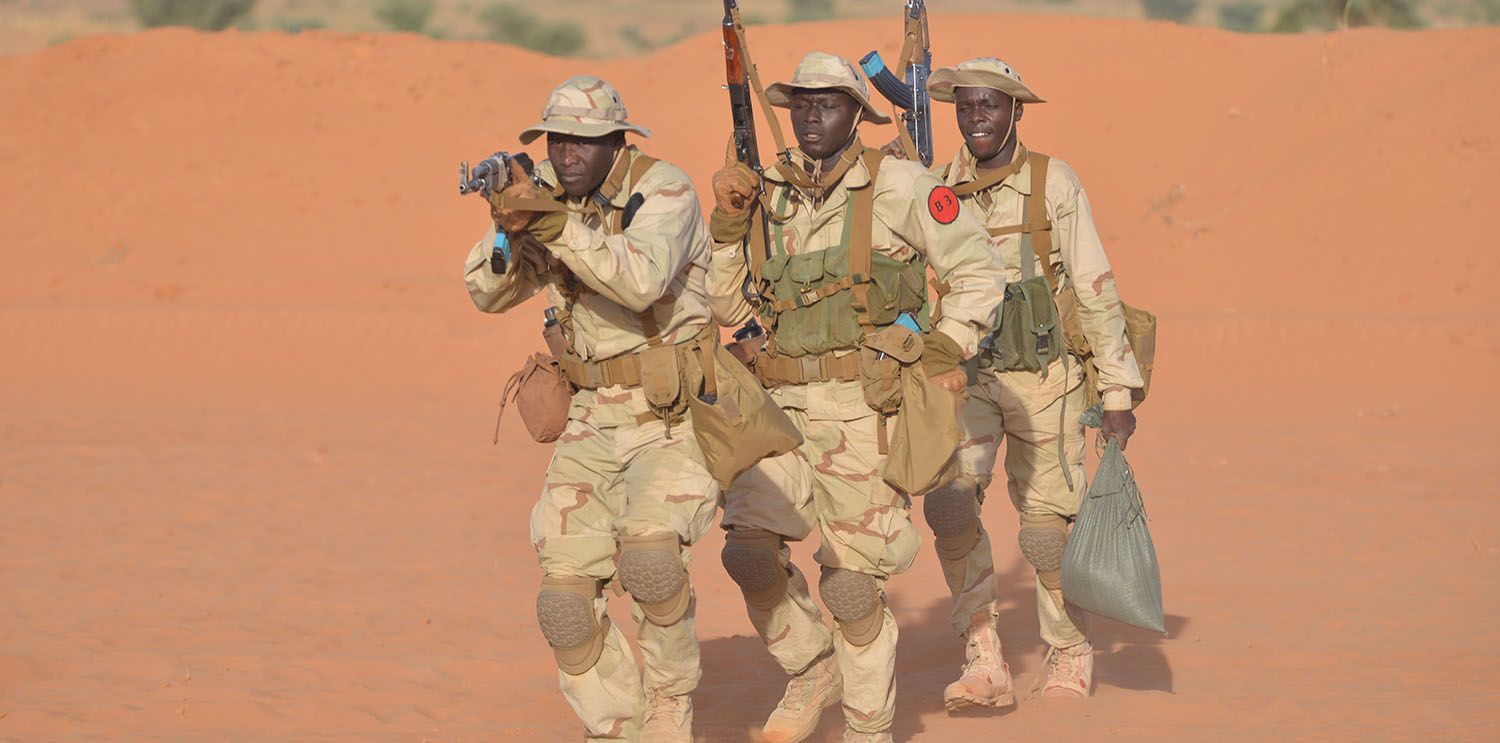
Everyday life in the camp
In Camp Wüstenblume, far away from their own troops and western partner nations, under the most adverse living conditions and climatic stress, the combat swimmers concentrate on their training mission. Food is prepared in a makeshift kitchen and the soldiers mainly rely on one-man packs for rations. The accommodation is limited to four rooms and the sanitary facilities to three shower-toilets. There is no privacy. Both the electricity and water supply regularly fail. Nevertheless, the special forces of the navy are not rattled, adapt to the environmental conditions and react flexibly to unforeseen circumstances.
In principle, the focus of combat swimmers is on special operations in the maritime sector. However, they can be deployed anywhere in the world at any time. As part of the three-year training programme to become a combat swimmer, both climate zone training and the ability to fight on land are defined training phases. In this case, the special forces of the Navy are deployed in the Sahel region of Niger as part of a training mission.
The blazing midday sun beats down mercilessly on the training centre. The company of the Nigerien military undergoes a demanding training programme in order to be trained as special forces. Following the tried-and-tested approach of "from the easy to the difficult, from the simple to the complex", every day they are taught new aspects of what they have already learnt. The principle of "demonstrate, explain, imitate and practise" plays a central role. Individual skills, in particular the handling of one's own equipment, as well as team spirit and camaraderie are taught. The motivation of the Nigerien partner unit is extremely high. All of the soldiers are eager to learn and eager to learn. This can be seen from the fact that the three platoons of the company have already developed a healthy competition with each other, which has led to independent repetition of training sections without any instructions from the combat swimmers.
The official language in Niger is French. However, most people speak Hausa. In addition, many soldiers can neither read nor write. Communication between combat swimmers and Nigerien soldiers was therefore difficult at first. The Nigerien army provided the instructors with language mediators who translated the instructions from English into French, which was only understood by the officers and non-commissioned officers, who in turn passed on instructions in Hausa. The individual training phases were therefore very time-consuming.
The training content to be taught had previously been developed together with the Nigerien military and was initially prepared in French. The Federal Language Office in Hürth translated these into German within a very short space of time so that the designated trainers could prepare for the training in the best possible way. They are now being implemented in English in close cooperation with the language mediators. As an example of the development of the training content, it should be mentioned here that first aid for the wounded is an important part of combat management, which teaches every soldier of the BSI the basics of a first aider under tactical conditions.
Until now, wounded soldiers in the Nigerien armed forces have only been treated by designated medical personnel, who can only be deployed if necessary and only when the tactical situation allows. This means that valuable time is lost. In particular, the measures taken within the first ten minutes after injury can make the difference between life and death. The ability of every soldier in the unit to provide first aid to the wounded in conjunction with the provision of an individual first aid kit is unique in Niger. The increase in first aid capability within the Nigerien special forces can therefore be considered significant. It is worth noting that the first aid kit is produced entirely in Niger itself, which emphasises the sustainability of this training.
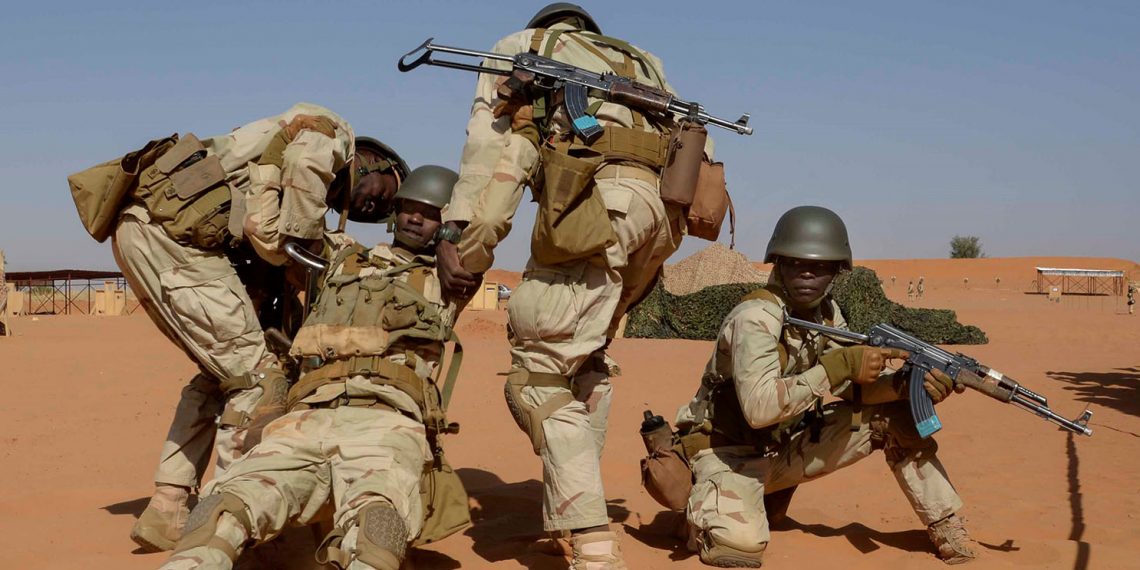
Connecting element in Niamey
Following an extensive reconnaissance in Niger in April 2018, it quickly became clear that a permanent liaison element was required in the capital in order to implement the German government's upgrading initiative. The prerequisites for this Special Operations Forces Liaison Element (Sofle) were created so quickly that a Sofle was able to be permanently deployed in Niamey from June 2018 - just two months after the reconnaissance. As part of the Gazelle mission, the Sofle is also the commander of the mission. His main tasks include coordinating cooperation and liaising with the commander of the Nigerien special forces. The most important issues include, above all, agreements on equipping the partner unit with personal equipment and vehicles, which are legally implemented by means of grant agreements. The decisive factor here is sustainability, i.e. the maintenance, care and aftercare of the newly procured equipment.
This is ensured by a structurally consolidated logistical system based on the French model within the Nigerien armed forces. This five-tier system provides for decentralised supply and simple maintenance measures in the country's regions as well as centralised and highly trained maintenance in the capital. Furthermore, agreements are made with the multinational partners on site, the joint approach is synchronised and experiences are exchanged.
In addition, the German ambassador and the defence attaché are regularly informed about the current situation by the commander of the Gazelle mission. In addition to routine tasks such as daily communication with the operational command level, the Special Operations Division of the Bundeswehr Operations Command, the tasks of the liaison element also include meetings and site visits to accompany the establishment of the special forces training facility. Visits by the Minister of Defence, the Inspector General of the Bundeswehr and the Commander of the Bundeswehr Operational Command were particular highlights for the forces of the Gazelle mission.
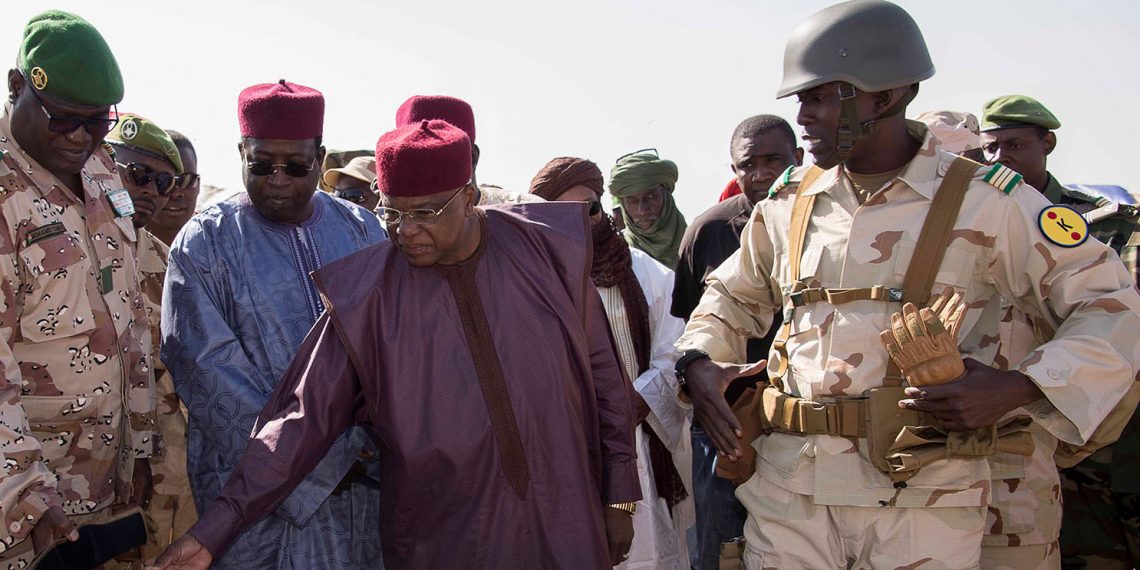
Completion of the first training phase
At the end of the six-week training programme, senior Nigerien representatives come to the training camp to inspect the new equipment of the Compagnie Spéciale d'Intervention (CSI) and their acquired skills as part of a dynamic demonstration at the closing ceremony. After an official line-up on the muster ground, the participants proceed through various stations (presentation of equipment, first aid for the wounded, movement in the squad) to the firing range, where patrolling and subsequent evasive shooting are demonstrated. From the governor of the regional zone to the ordinary soldier in the company, everyone is enthusiastic about the training provided by German combat swimmers and is convinced that this special co-operation will significantly improve the security situation in Niger.
The sun over Camp Wüstenblume disappears behind the horizon just as quickly as it has risen. However, the temperatures in the shade do not drop nearly as quickly. For the combat swimmers, it is now time to reload their equipment and prepare for the next day's activities. Despite the adverse conditions on site, the enthusiasm for this mission prevails. The visible daily training progress of the partner unit provides further motivation for their own commitment and aspirations for high-quality training. After the impressive graduation ceremony, the combat swimmers are now looking forward to returning home to their families. However, everyone is clearly looking forward to the next stage of training and seeing their partner unit again.
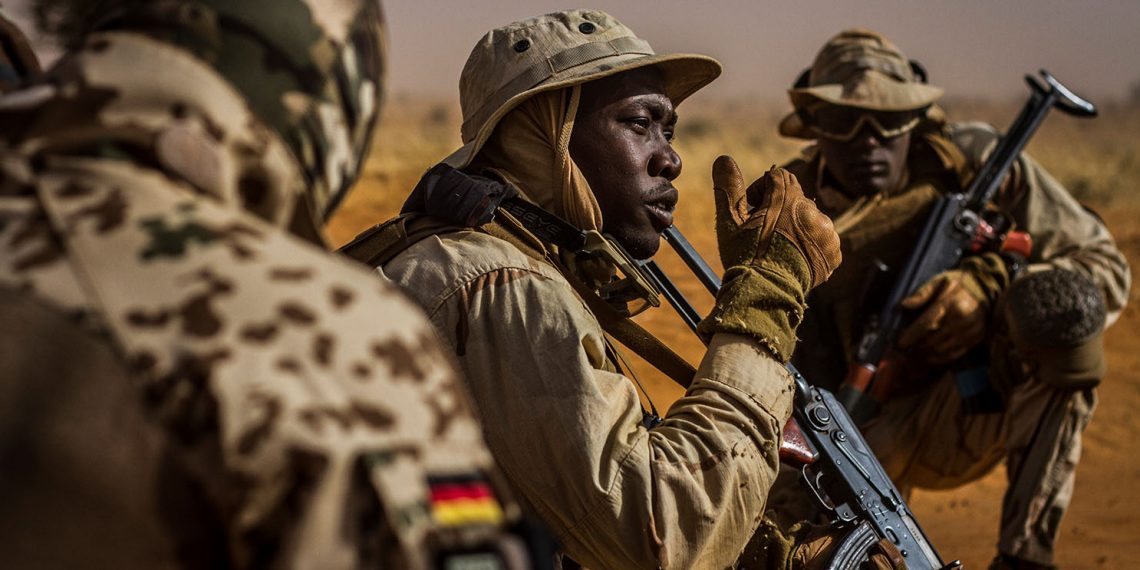
Corvette Captain S. is head of the combat swimmer company in the Navy's Special Forces Command. From August 2018 to January 2019, he was commander of the Gazelle mission.
Photos: Naval Special Forces Command

